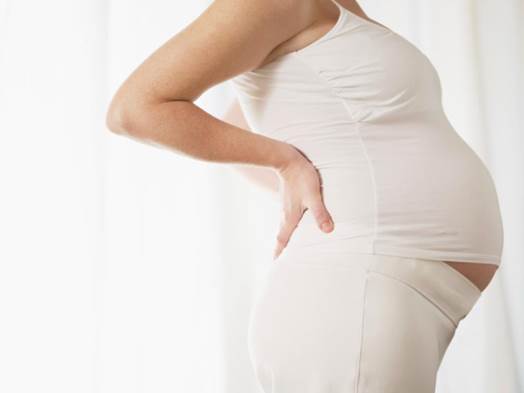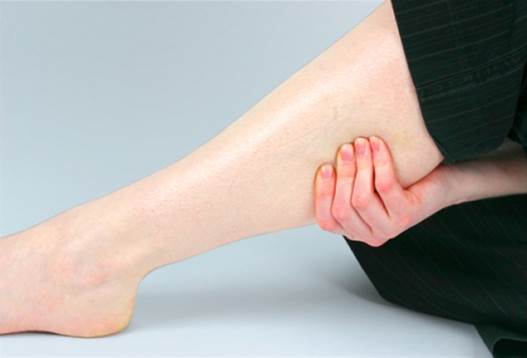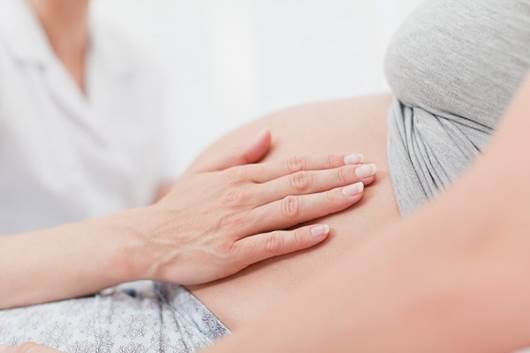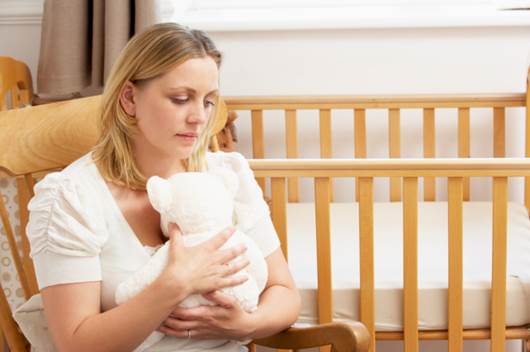Miscarriage is one of things that nobody
wants to happen in their pregnancy. The following is miscarriage information
that women should know.
1. The reasons of miscarriage
The reasons of miscarriage are often
carious and impossible to identify. Miscarriage can due to chromosome
abnormalities or caused by hormone imbalance, hormone abnormalities, autoimmune
disorders, phospholipid syndrome (an immune problem caused by blood clot
issues) or womb abnormalities.
2. Signs of miscarriage

Backache
can be a sign of miscarriage.
If you have any of the following signs, you
should see a doctor to prevent the risk of miscarriage:
·
Backache (from medium pains to severe ones)
·
Weight loss
·
White-pink vagina fluid
·
Uterine spasm (happen each 5-20 minutes)
·
Bleeding red or brown blood and might be
followed by cramps
·
Losing pregnant sickness signs suddenly

Light
spasms are the most popular signs which are like a result of expand cancer.
However, light bleeding and spasms won’t be
the signs of miscarriage all the time. Those signs are very popular in the
early stage of pregnancy and often don’t need worrying about. According to
Laurie Gregg – directors of obstetrics and gynecology of Memorial Sutter
Hospital, California said that bleeding in the first trimester happens to about
40% pregnant women; light spasms are the most popular signs which are like a
result of expand cancer.
Therefore, see a doctor tell them about
your blood clots, bleeding and spasm… if you have severe pains, especially from
hipbone, you should see a doctor soon as it might be the signs of ectopic
pregnancy.
What’re
the signs of miscarriage?
·
Having blood clots and no pain
·
Having vaginal fluid without pain or bleeding
How
many kinds of miscarriage?
Miscarriage develops accordingly to a
process including many stages, from the beginning to the end (fetuses are
pushed outside). However, it’s not every times that miscarriage occurs like the
process. There’re some miscarriage types.

It
begins with the bleeding.
·
Threatening miscarriage: It begins with the bleeding (often a small amount) - the blood is
red or dark red, come along with backache, cramps repeatedly for few days. The
cervix is still closed. Pregnant women have bleeding sign. In many cases, after
pregnant women have the signs that are diagnosed to be threatening ones, might
have miscarriage. The reason of those cases can be due to the chromosome
abnormalities.
·
Incomplete miscarriage: having abdominal pain, backache and bleeding. When the cervix is
open, the bleeding and cramps get more serious.
·
Complete miscarriage: fetuses are discharged from the womb. The blood will come out
suddenly and strongly, followed by uterine spasms. Complete miscarriage will be
diagnosed by using ultrasound.
·
Stillbirth: Even to experienced pregnant women, stillbirth is hard to be
recognized. Stillbirth happens when fetuses are dead but still remain in the
womb. There’re many pregnant women who didn’t know the exact time when the
fetuses are dead. Some common signs are the loss of pregnancy sickness and
fetal heartbeat.
3. Will women who had miscarriage have other miscarriage the next time
they’re pregnant?
When a women have miscarriage recurrences
(3 times or more), it’s necessary that they need to have reproductive endocrinology
tests to find out the reason.
If you have had miscarriage once, it’s
possible that you would have other ones. The rate of second miscarriage doesn’t
increase much. However, if you had miscarriage twice, the risk of the third one
will increase 20%. After 3 times, the number will be 30% increased; 4 times is
40%. But you should also know that even when you have 4 times having
miscarriage, you still have 60% the chance of successful conception.
4. Does age increase the risk of miscarriage?
Doctors of the American College of
Obstetricians and Gynecologists say that women who are 20-30 years old have 15%
the risk of miscarriage. At the age of 35, the risk will be a quarter increased
and a third in 40.
5. Does the abortion lead to miscarriage?
If you had abortions before, let your
doctor know. Though there’re many arguments about different ideas, some show
that having abortion for more than 3 times will make the cervix no longer
unharmed. The risk of miscarriage will increase when women get pregnant soon after
having abortions (fewer than 3 months after the miscarriage).

The
risk of miscarriage will increase when women get pregnant soon after having
abortions (fewer than 3 months after the miscarriage).
6. Will exercise increase the risk of miscarriage?
There’s no evidence showing that doing
exercise moderately during pregnancy will increase the risk of miscarriage.
Pregnant women only need to stay out from activities that have high risk of
falling, such as riding horses, skiing, soccer and basketball… besides,
pregnant women also need to drink enough water to avoid getting too hot when
doing exercise.
Practically, exercise can really bring
health benefits. Many researches show that women who practice exercise
moderately during pregnancy have the risk of miscarriage 4% as low as women who
don’t. Additionally, exercise prevent gaining too much weight and help women
have easier labor.
7. What’ll happen after miscarriage?

You
can have blood clots and discomfort in a few days.
You can have blood clots and discomfort in
a few days. However, you need to see a doctor when have severe bleeding, fever,
thrilling or pain – they can be the signs of infection. It’s recommended that
women shouldn’t get pregnant in the first 3 months after miscarriage.
8. Is there any prevention from miscarriage?
Many miscarriage cases appear without
prevention. Nonetheless, it’s possible that we can decrease the rate of
miscarriage by take good care of ourselves, not using drugs arbitrarily,
neither drinking alcohol nor smoking. If you have a history of successive
miscarriage, you take genetic test to find out whether you or your husband have
abnormal chromosomes that affect the egg or sperm.